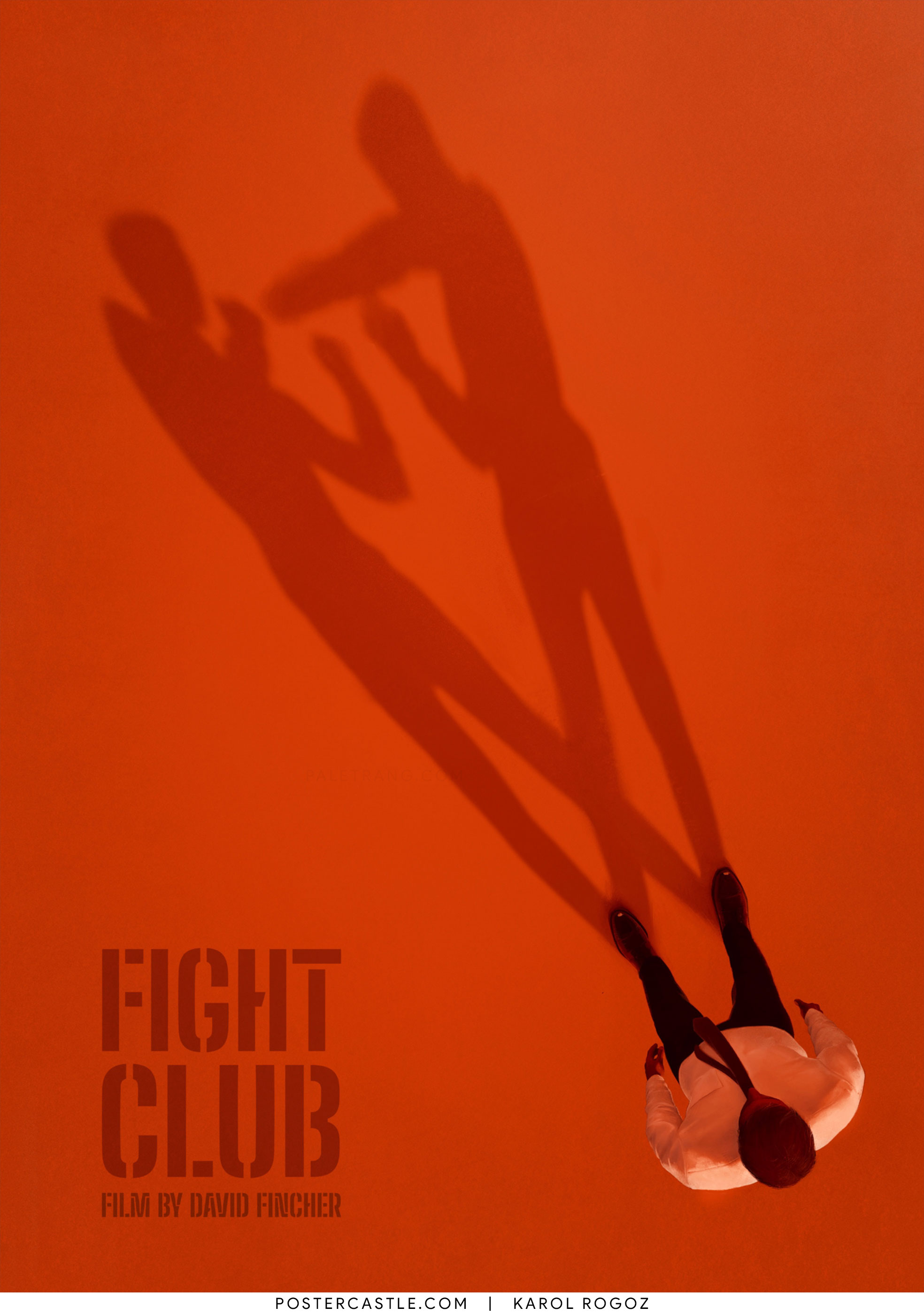Fight Club Bollywood Film: The Ultimate Guide To The Unseen Gem
Ever wondered why the Bollywood adaptation of Fight Club flew under the radar? Let's dive into the world of this underrated masterpiece that deserves more love. Fight Club Bollywood film has been a hidden gem for fans of edgy storytelling and unconventional narratives. If you're here, chances are you're looking for something fresh, bold, and thought-proving in Indian cinema. Well, buckle up because we're about to take a deep dive into this cinematic marvel.
Now, before we get into the nitty-gritty, let’s set the stage. Fight Club, originally a cult classic novel by Chuck Palahniuk, became an iconic film directed by David Fincher. When Bollywood decided to adapt it, the buzz was palpable. But what happened? Why didn’t it get the attention it deserved? That’s exactly what we’re going to explore.
Our journey today is all about understanding the nuances of the Fight Club Bollywood film adaptation. From its unique take on the original story to the cultural context that shaped it, we’re covering everything you need to know. So, whether you’re a die-hard fan of the original or just curious about this lesser-known version, this article’s got you covered.
- Kenny Smith Allstar The Journey Achievements And Legacy
- Is Shaq Married The Untold Story Behind The Big Diesels Love Life
Daftar Isi
Background of Fight Club Bollywood Film
Comparison with the Original Fight Club
- Samantha Middleton Husband The Untold Story You Wonrsquot Believe
- Alice Rosenblum Porn Leaks The Untold Story You Need To Know
Cultural Impact of Fight Club Bollywood
Background of Fight Club Bollywood Film
Let’s kick things off with a little backstory. The Fight Club Bollywood film adaptation came to life in 2011, titled "Love, Sex aur Dhokha." Directed by Dibakar Banerjee, this film took on the challenge of reimagining the classic narrative within the Indian cultural framework. It wasn’t just about translating the story; it was about creating something new and relatable for the local audience.
The film’s premise remains strikingly similar to its predecessor: a tale of disillusionment, identity crises, and the search for meaning in a chaotic world. But instead of focusing solely on male characters, the Bollywood version introduces a female protagonist, adding layers to the narrative. This twist alone sets it apart from the original and gives it a unique flavor.
What makes this adaptation interesting is how it tackles themes relevant to modern Indian society. From the pressure of societal expectations to the struggle for self-discovery, "Love, Sex aur Dhokha" doesn’t shy away from difficult conversations. And that, my friend, is what makes it such a compelling watch.
Comparison with the Original Fight Club
Now, here’s where things get juicy. Comparing the Fight Club Bollywood film with the original is like comparing apples and oranges—or maybe mangoes and oranges, given the cultural shift. While both films share the same core themes, their execution differs significantly.
- Storyline: The Bollywood adaptation simplifies the complex psychological elements of the original, making it more accessible to a broader audience.
- Characters: The inclusion of a female lead adds a fresh perspective, exploring issues like gender roles and empowerment.
- Visuals: The aesthetic of "Love, Sex aur Dhokha" leans more towards vibrant colors and dramatic sequences, typical of Bollywood cinema.
But here’s the kicker: while the original Fight Club dives deep into existential philosophy, the Bollywood version leans towards a more relatable, everyday struggle. And honestly, that’s what makes it resonate with so many viewers.
Cast and Crew of the Film
Talking about the Fight Club Bollywood film without mentioning its stellar cast would be a disservice. Directed by Dibakar Banerjee, the film features a mix of established and upcoming talent.
Key Cast:
- Imran Khan: Playing the role of the disillusioned protagonist, Imran brings a nuanced performance to the table.
- Kangana Ranaut: As the fiery female lead, Kangana adds depth and complexity to the narrative.
- Ronit Roy: Known for his versatile performances, Roy plays a pivotal role in driving the story forward.
The crew deserves a shoutout too. From the cinematography that captures the raw energy of urban India to the soundtrack that complements the film’s mood, every element comes together seamlessly.
Production Challenges
Making a film like "Love, Sex aur Dhokha" wasn’t without its challenges. The production team faced several hurdles, from adapting the source material to ensuring it resonated with Indian audiences.
One of the biggest challenges was balancing authenticity with commercial appeal. The film had to stay true to its roots while also catering to the expectations of Bollywood cinema. This meant reworking certain scenes, modifying dialogues, and even tweaking the ending to make it more palatable for the audience.
Additionally, the team had to navigate the delicate waters of censorship. Certain themes explored in the film, like sexuality and rebellion, pushed the boundaries of what was acceptable at the time. But credit where it’s due, the filmmakers managed to deliver a powerful message without compromising on artistic integrity.
Reception and Reviews
So, how did the Fight Club Bollywood film fare with critics and audiences? Mixed reactions, to say the least. While some praised it for its boldness and innovation, others criticized it for not living up to the original’s legacy.
Critics appreciated the film’s attempt to tackle complex themes and its willingness to challenge societal norms. They praised the performances, particularly those of Imran Khan and Kangana Ranaut, calling them standout moments in the film.
However, there were complaints about the pacing and certain narrative choices that didn’t quite land with everyone. Some viewers felt the film lost some of the original’s edge in translation, while others found it refreshingly different.
Cultural Impact of Fight Club Bollywood
Despite the mixed reviews, the Fight Club Bollywood film left a lasting impact on Indian cinema. It opened the door for more experimental storytelling and encouraged filmmakers to take risks.
The film sparked conversations around topics that were often swept under the rug. Issues like mental health, societal pressures, and the search for identity became part of mainstream discourse, thanks to its bold narrative.
Moreover, it paved the way for a new generation of filmmakers who weren’t afraid to push boundaries and challenge conventions. Today, we see more films exploring similar themes, and "Love, Sex aur Dhokha" can be credited as one of the pioneers in this space.
Themes Explored in the Film
At its core, the Fight Club Bollywood film is all about exploring the human condition. It delves into themes like alienation, identity, and the quest for meaning in a fast-paced world.
- Alienation: The film highlights the feelings of isolation and disconnection that many people experience in modern society.
- Identity: It questions what it means to be oneself and how external factors shape our sense of self.
- Rebellion: The narrative celebrates the act of breaking free from societal constraints and finding one’s voice.
These themes are woven into the fabric of the story, creating a rich tapestry that resonates with audiences on a deeper level.
Success and Failures
When it comes to measuring the success of the Fight Club Bollywood film, opinions vary. On one hand, it succeeded in creating a buzz and sparking important conversations. On the other hand, it fell short of commercial success, failing to attract a wider audience.
Its failure to resonate with mainstream viewers can be attributed to its unconventional narrative and bold themes. But as we’ve seen time and again, films that challenge the status quo often gain recognition over time. And "Love, Sex aur Dhokha" is no exception.
Future Prospects
Looking ahead, the Fight Club Bollywood film could inspire more adaptations of global classics with a local twist. It sets a precedent for filmmakers to experiment with storytelling and embrace diverse narratives.
Moreover, as audiences become more accepting of unconventional cinema, we might see a resurgence of interest in films like "Love, Sex aur Dhokha." Its themes remain relevant, and its message continues to resonate with viewers who are seeking something more from their cinematic experiences.
Conclusion and Final Thoughts
Wrapping up, the Fight Club Bollywood film adaptation, "Love, Sex aur Dhokha," is a testament to the power of storytelling. It takes on complex themes and delivers them with a unique Indian perspective. While it may not have been a commercial success, its cultural impact and legacy are undeniable.
So, here’s what I want you to do: if you haven’t already, give this film a watch. It’s a thought-provoking piece that challenges you to think beyond the surface. And once you’re done, head over to the comments section and let me know what you think. Did it live up to your expectations? Or did it leave you wanting more? Share your thoughts, and don’t forget to check out our other articles for more cinematic insights.
- Samantha Middleton Husband The Untold Story You Wonrsquot Believe
- Melina Goranssen The Rising Star Taking The World By Storm

Fight Club (1999) Poster Castle

Fight Club Hotstar

to the show Student Fight Club